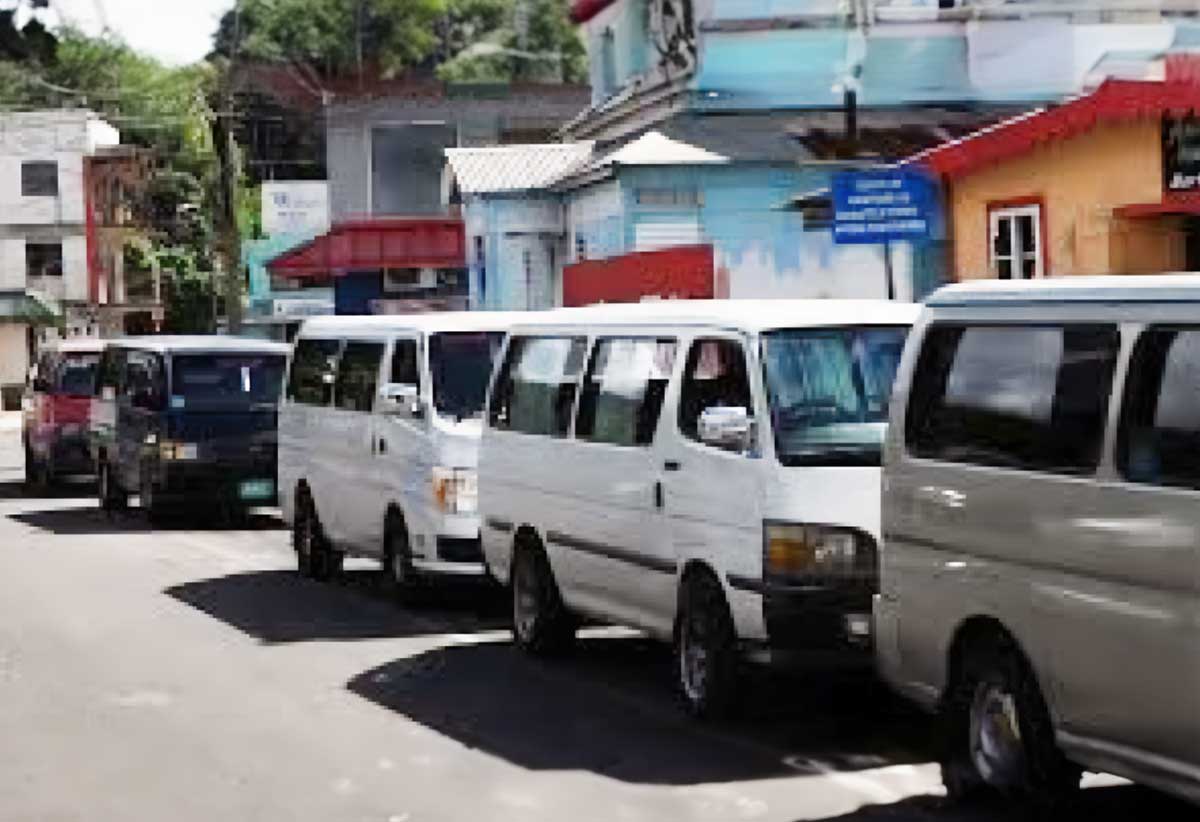
As the National Council on Public Transportation (NCOPT) continues to strategize ways to better cater for the welfare of its members, the issue of discipline for delinquent mini-bus drivers and proper road maintenance are foremost on its agenda.
The NCOPT is calling for bus operators to be supervised by a Disciplinary Tribunal with legally enforceable powers. Notwithstanding, the NCOPT President Godfrey Ferdinand is frustrated with the ‘inordinate delays’ over the years that has hampered the initiation of this proposal.
In its appeal to the government, the NCOPT reiterates the need for a legally binding Disciplinary Committee to oversee the operations of bus operators.
Presently, the NCOPT awaits a response as to the way forward on the implementation of the Caribbean Development Bank (CDB) Report on Reform to the Caribbean’s Transportation System.
“The last time we had a meeting with the prime minister and the minister (responsible for) transport, we were promised that we would have gotten this Disciplinary Committee by July, last year,” said Ferdinand.
Since then, he explained, the NCOPT has received a CDB Report which “would have given the government and the National Council a fair indication of how the fare(s) should be, in terms of the different routes”, as of last December.
Ferdinand said, some ten months later, the NCOPT has not yet received the Disciplinary Committee, however, they were presented with an overview of the account from the CDB Report.
“But the actual hard copy, in terms of implementation of what was suggested by the CDB Report is yet to be handed over,” declared Ferdinand.
He contended that there is a limit to the actions, which can be taken by the NCOPT for alleged misconduct by bus operators.
The NCOPT official claims that while there are bus drivers operating with impunity, passengers have limited recourse to vent their grievances when they encounter difficulties.
“When it comes to discipline, we have members that you can send home, maybe (because) they did something that requires them to be disciplined,” Ferdinand explained. “But, if you have ‘repeat offenders’ and the person that is responsible for the permit has it suspended or revoked is doing nothing about …the operator will feel that nobody can touch them and they can continue ill-treating other bus operators and misbehaving in the sector and ill-treating passengers, as well.”
He recalled that there are cases and “files upon files” of complaints against bus operators that has not been dealt with.
He feels it is time to get past legally binding impunitive measures, fines and suspensions and to hold individuals accountable for their misdeeds.
Ferdinand says, the NCOPT “cannot touch the permit” because that is the driver’s “daily bread” or earnings. He said, whereas the individual can be suspended for a month or more, the bus can still operate on the designated route.
So, in a sense, he said, the operator will “really have not lost anything … but if you can suspend the operator and the bus for one or two months or so, the individual will think twice before committing an offense.”
The NCOPT president feels that “the ministry is playing with this and we’ve seen the consequences of it …bus operators behaving (disorderly) and doing whatever they want”.
He argues that this is not the NCOPT’s responsibility, but rather “that’s the government’s responsibility, because they are the ones that can suspend and revoke the permit, and even suspend licenses (drivers) too.”
In the meantime, while acknowledging the recent repairs to some of the island’s critical roads, the NCOPT, nonetheless, are urging the government to prioritize a comprehensive road maintenance programme.
The NCOPT views this as a timely intervention to be undertaken before the scheduled infrastructure agenda for 2024 is fully implemented, as part of the ministry’s efforts to ensure the motoring public’s continued relief and safety on the island’s roadways.
Noting that there has been ‘significant improvements’ to several critical roads across the island, the NCOPT is pushing for a comprehensive and sustainable road maintenance programme to be put in place.
“By next year, we expect more roads to be done. We hope the government will stick to their word and do the roads as they’ve declared for next year,” said Ferdinand.
“Saint Lucia has made substantial progress with recent road repairs, but we must prioritize consistent maintenance to keep our roadways safe and efficient,” he stated. “We need to ensure that these road improvements are not just quick fixes but part of a broader, ongoing strategy to maintain the integrity of our transportation infrastructure.”
Meanwhile, the NCOPT is urging the Ministry of Infrastructure to work closely with the organisation and other stakeholders to devise a detailed plan for a long-term road maintenance programme.













